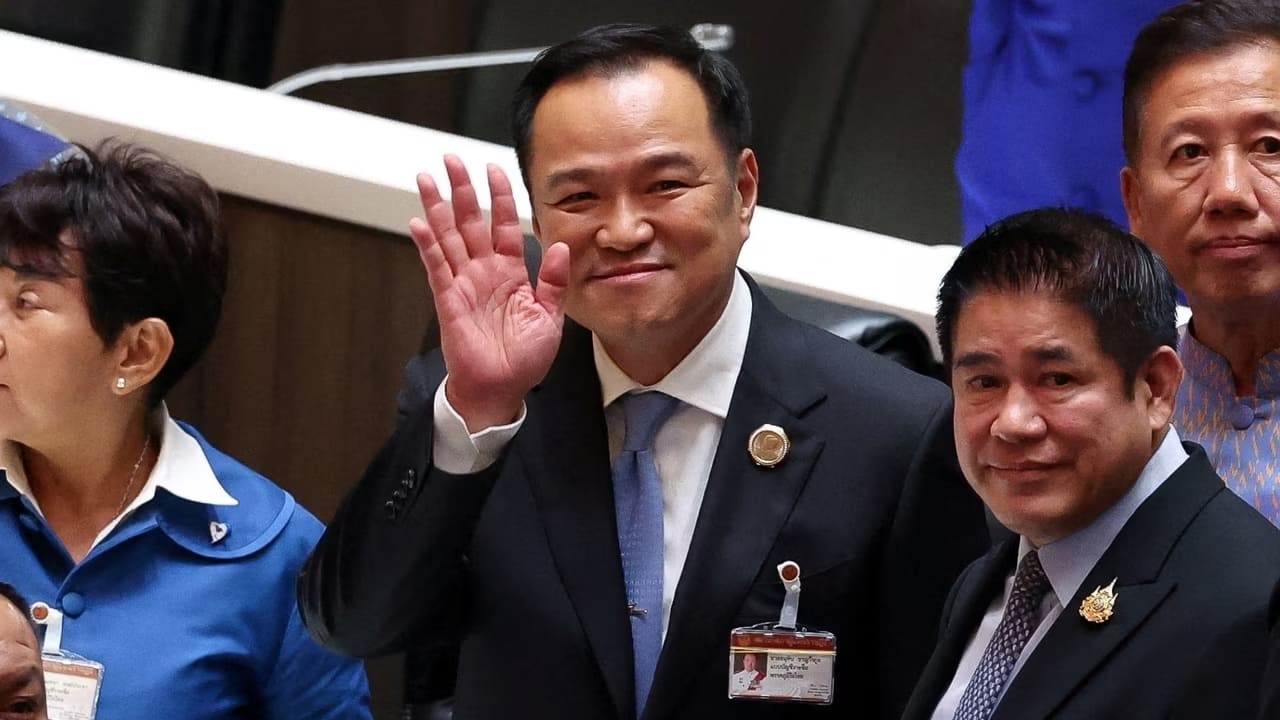
IndependentReport – Thailand is once again at the center of Political Crisis, with Anutin Charnvirakul often called the “Cannabis King” for his central role in decriminalizing marijuana emerging as the country’s new prime minister. His rise follows the dramatic dismissal of Paetongtarn Shinawatra, who was removed from office after a controversial leaked phone call with Cambodian Senate leader Hun Sen raised accusations of undermining national sovereignty.
Anutin, leader of the Bhumjaithai Party, successfully secured parliamentary support by aligning with the People’s Party. This coalition came with clear conditions: constitutional reforms and a commitment to hold new general elections within four months. For Anutin, who has long combined political pragmatism with populist health reforms, the premiership marks both a personal triumph and a critical test of leadership amid a volatile climate.
In the aftermath of Paetongtarn’s ouster, Thailand entered a power vacuum. Acting prime minister Phumtham Wechayachai attempted to dissolve parliament on September 3, seeking a fresh mandate to restore stability. However, the Royal Council rejected his proposal, arguing that such a move could worsen the uncertainty rather than solve it.
Now, with Anutin officially stepping in, the pressure to dissolve parliament has intensified. Several opposition parties, as well as sections of the ruling bloc, argue that only a new election can restore legitimacy. Whether the King will approve such a dissolution remains unclear, but the demand highlights the fragile balance between Thailand’s elected institutions, its monarchy, and the judiciary.
Also Read : Supreme Court Barrett Insists the United States Is Not Facing a Constitutional Crisis
The current turmoil did not arise overnight. Instead, it reflects long-standing tensions between old power structures and newer populist movements. The crisis unfolded in a sequence of pivotal events that undermined confidence in the government.
These events, each escalating the crisis further, reveal how Thailand’s politics remain vulnerable to both internal divisions and external pressures.
The People’s Party played a decisive role in enabling Anutin’s rise. Their support, however, came with five conditions that will shape the future of Thailand Political Crisis. Among them are the dissolution of parliament within months, amendments to the constitution, and guarantees for a fair electoral process. These demands reflect widespread frustration with the current system, which many critics argue is skewed in favor of entrenched elites.
For Anutin, balancing this reform agenda with the need to maintain stability will not be easy. He must reassure investors, manage public expectations, and navigate Thailand’s complex power triangle of monarchy, military, and elected politicians. The success or failure of his administration may determine whether Thailand moves closer to genuine democratic reform or slips further into cyclical crises.
Read More : Cybersecurity in VoIP: Safeguarding Conversations
The elevation of Anutin Charnvirakul symbolizes both change and continuity. On one hand, his reputation as the “Cannabis King” represents a populist shift that resonates with younger voters. On the other, his pragmatic alliance-building underscores the persistence of old political bargaining that has long characterized Thai governance.
Thailand’s next steps remain uncertain. Will the King approve a full dissolution of parliament and allow fresh elections? Will Anutin’s reform pledges satisfy public demands for accountability? Or will entrenched interests stall meaningful progress? The answers to these questions will determine whether this crisis becomes a turning point toward stability or yet another episode in Thailand’s long-running cycle of political upheaval.